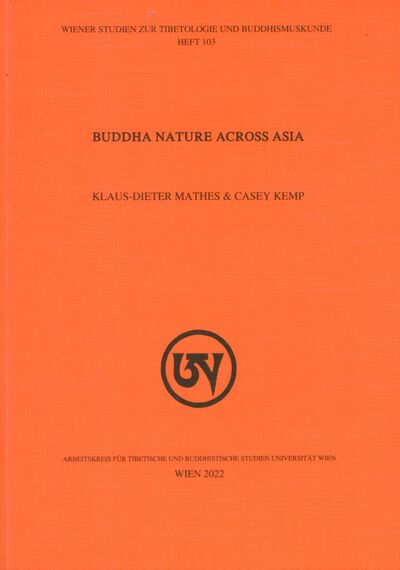No edit summary |
No edit summary |
||
| Line 48: | Line 48: | ||
**{{i|''Douglas Duckworth''|423}} | **{{i|''Douglas Duckworth''|423}} | ||
*16. The Impact of a Zhentong Interpretation of Tathāgatagarbha Doctrine from<br> the Point of View of a Western Buddhist Practitioner | *16. The Impact of a Zhentong Interpretation of Tathāgatagarbha Doctrine from<br> the Point of View of a Western Buddhist Practitioner | ||
**{{i|''Shenpen Hookham''|447}} | **{{i|''Shenpen Hookham''|447}} | ||
Latest revision as of 17:14, 11 October 2022
The tathāgatagarbha or buddha nature doctrine is centered on sentient beings’ potential for buddhahood—sometimes understood in the sense that all beings already contain a “buddha within.” This notion is found through various strands of early Mahāyāna sources that, notwithstanding their complex and interwoven development, came to share enough common features to summarize them under the doxographical category of Tathāgatagarbha.
The chapters contained in this volume represent the latest research into buddha nature theory that covers a range of topics across major Buddhist traditions. These contributions were originally presented as papers during the symposium “Tathāgatagarbha across Asia: The Reception of an Influential Mahāyāna Doctrine in Central and East Asia,” held at the University of Vienna in 2019. This symposium brought together academic scholars focusing on religio-historical developments of buddha nature theory as well as traditional teachers and monastics who offered emic perspectives on the relevance of the concept within the context of their own tradition. The resulting volume, therefore, aims at contributing to the overall better understanding of tathāgatagarbha doxography, both historically and in living Buddhist communities. (Source: WSTB)
| Citation | Mathes, Klaus-Dieter, and Casey Kemp, eds. Buddha Nature Across Asia. Wiener Studien zur Tibetologie und Buddhismuskunde 103. Vienna: Arbeitkreis für tibetische und buddhistische Studien, University of Vienna, 2022. |
|---|---|
The wikipage input value is empty (e.g. <code>, [[]]</code>) and therefore it cannot be used as a name or as part of a query condition.

